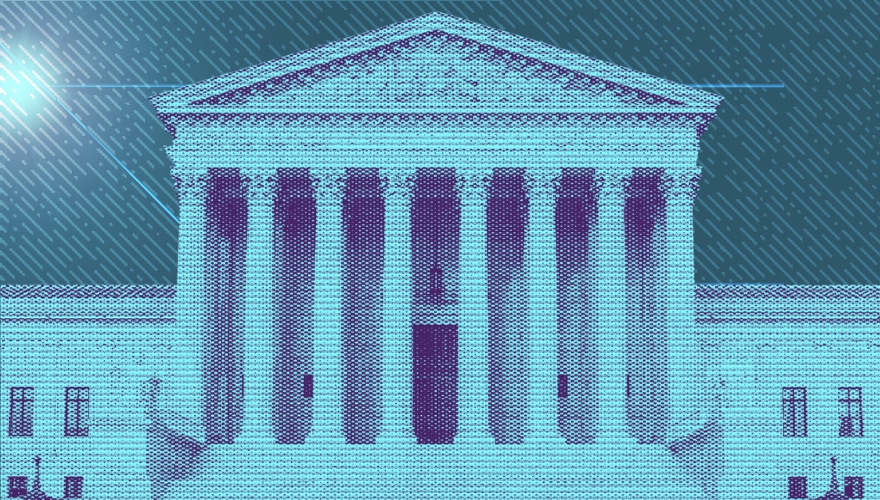The Supreme Court agreed to hear arguments debating the constitutionality of the funding allotted to the Consumer Financial Protection Bureau.
The watchdog agency is funded by the Federal Reserve and not through annual allotments established by Congress.
A panel of three judges on the Fifth Circuit Court of Appeals ruled in 2022 that the funding structure of the CFPB is unconstitutional because the Federal Reserve is funded by bank fees.
The Biden administration says the appellate court’s ruling casts doubts on every decision the agency has made for the last 12 years and appealed to the Supreme Court to reverse the lower court’s ruling.
“The CFPB’s critical work administering and enforcing consumer financial protection laws will be frustrated,” the federal government wrote in a brief to the court. “Because the decision below vacates a past agency action based on the purported Appropriations Clause violation, the decision threatens the validity of all past CFPB actions as well. That threat raises grave concerns not just for the CFPB and consumers, but for the entire financial industry.”
A coalition of 21 Attorney Generals, all Democrats, are in support of the Biden administration’s appeal.
Established in 2011, the CFPB was created by the Dodd-Frank Act. The Democratic-controlled Congress that created the agency said the funding structure insulated it from political pressure. The agency has the “authority to administer, enforce, and otherwise implement federal consumer financial laws, which includes the power to make rules, issue orders, and issue guidance,” per Cornell Law. This includes leading investigations and initiating the pursuit of relief in civil proceedings. The agency is advised by a Consumer Advisory Board.
The CFPB was first proposed by Massachusetts Senator Elizabeth Warren, who has defended the agency’s structure.
“Despite years of desperate attacks from Republicans and corporate lobbyists, the constitutionality of the CFPB and its funding structure have been upheld time and time again,” said Warren, per CNBC. “If the Supreme Court follows more than a century of law and historical precedent, it will strike down the Fifth Circuit’s decision before it throws our financial markets and economy into chaos.”
Other agencies, including the U.S. Postal Service, the U.S. Mint, and the Federal Deposit Insurance Corp, are not funded by congressional appropriations.
The CPFB’s autonomy has been reduced as a result of earlier legal challenges. In 2020, the Supreme Court ruled a president had the authority to terminate the agency’s director, who is Senate-appointed and serves a five-year term. The CFPB’s director previously could only be fired for malfeasance, inefficiency or neglect of duty, per Fox News.
The Supreme Court will hear CFPB v. Community Financial Services Association during its next term sometime in the fall. A decision would most likely be released in 2024.

